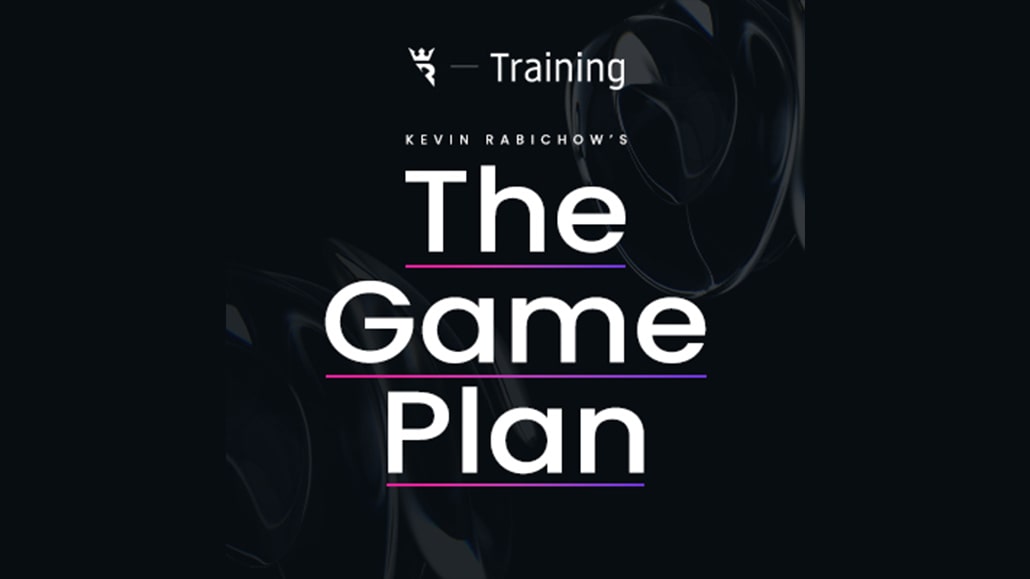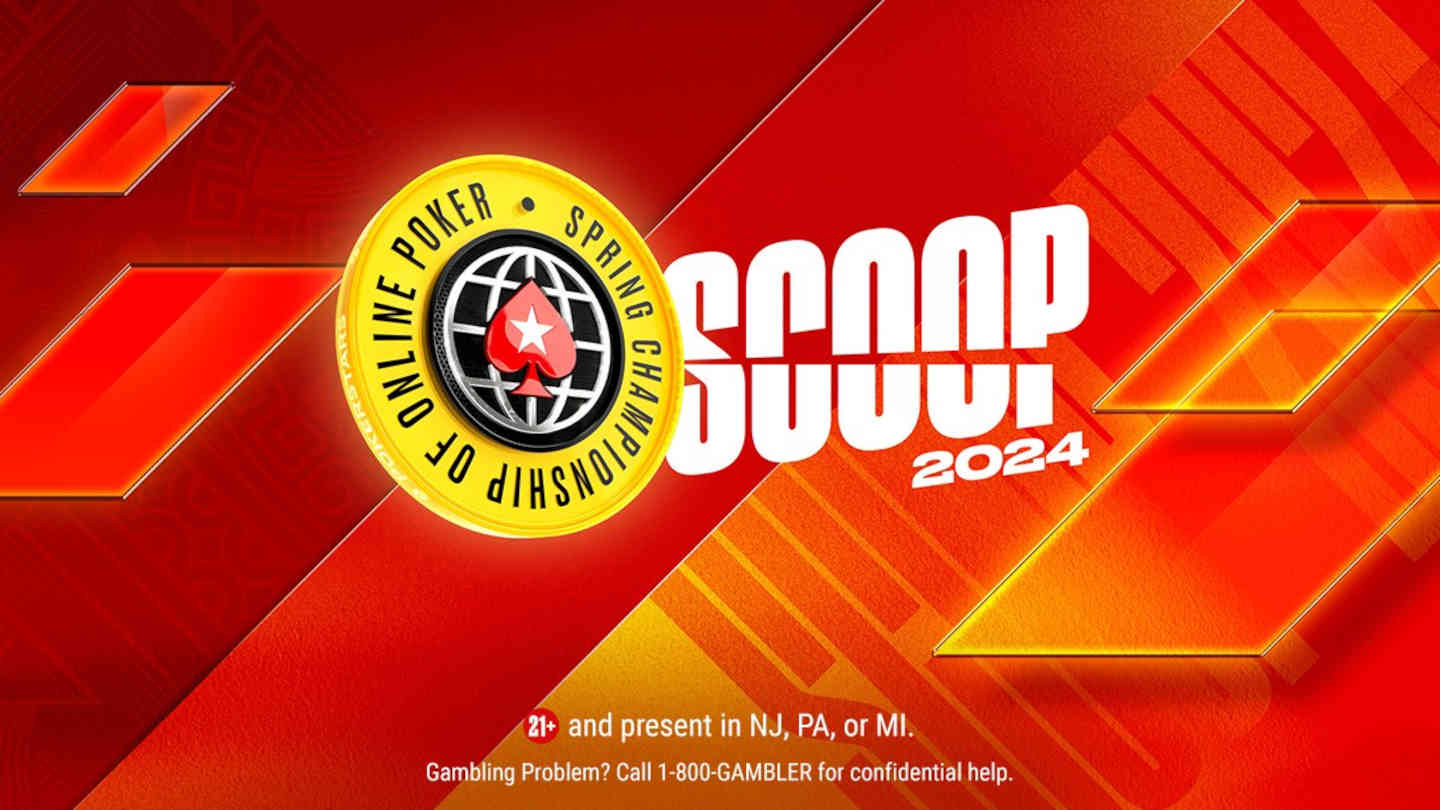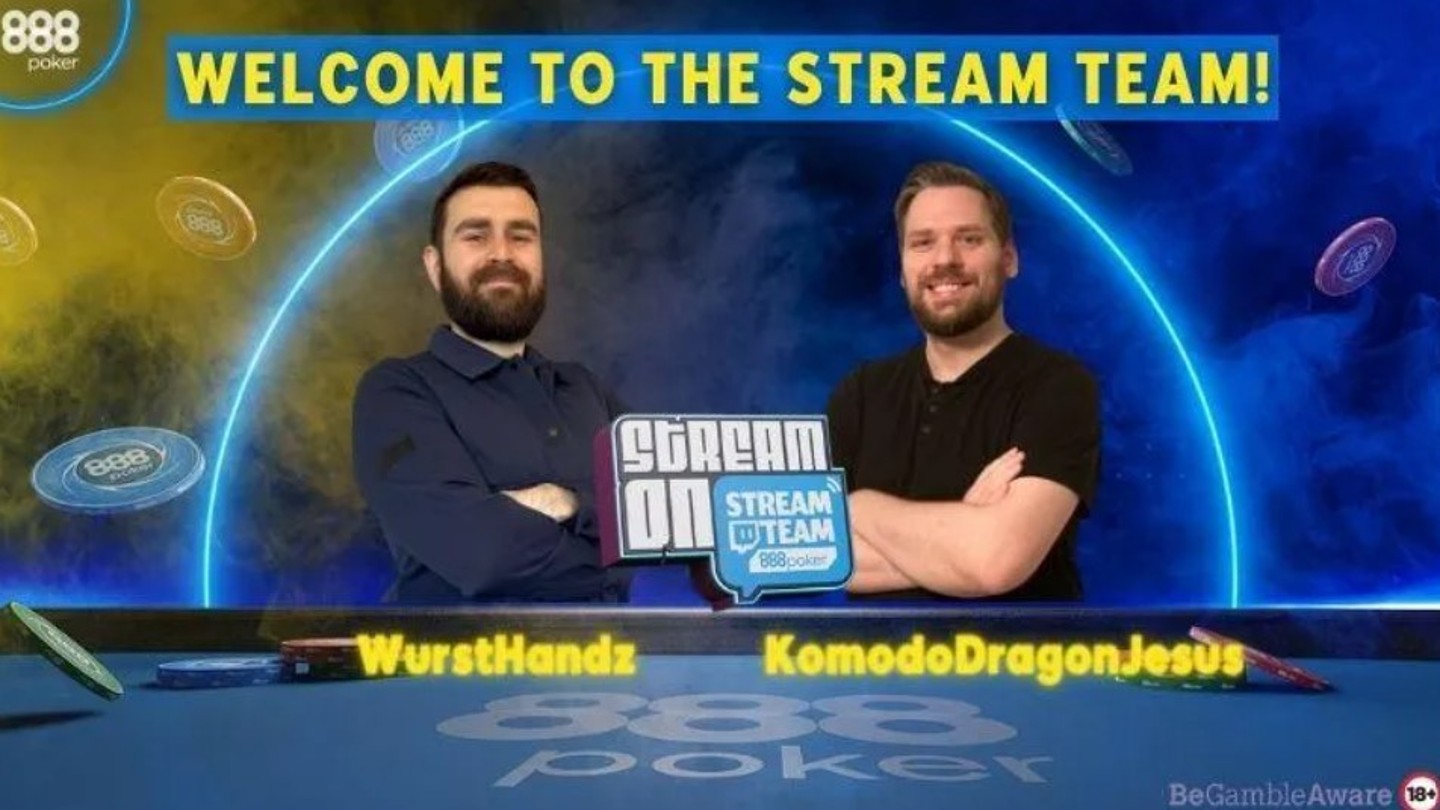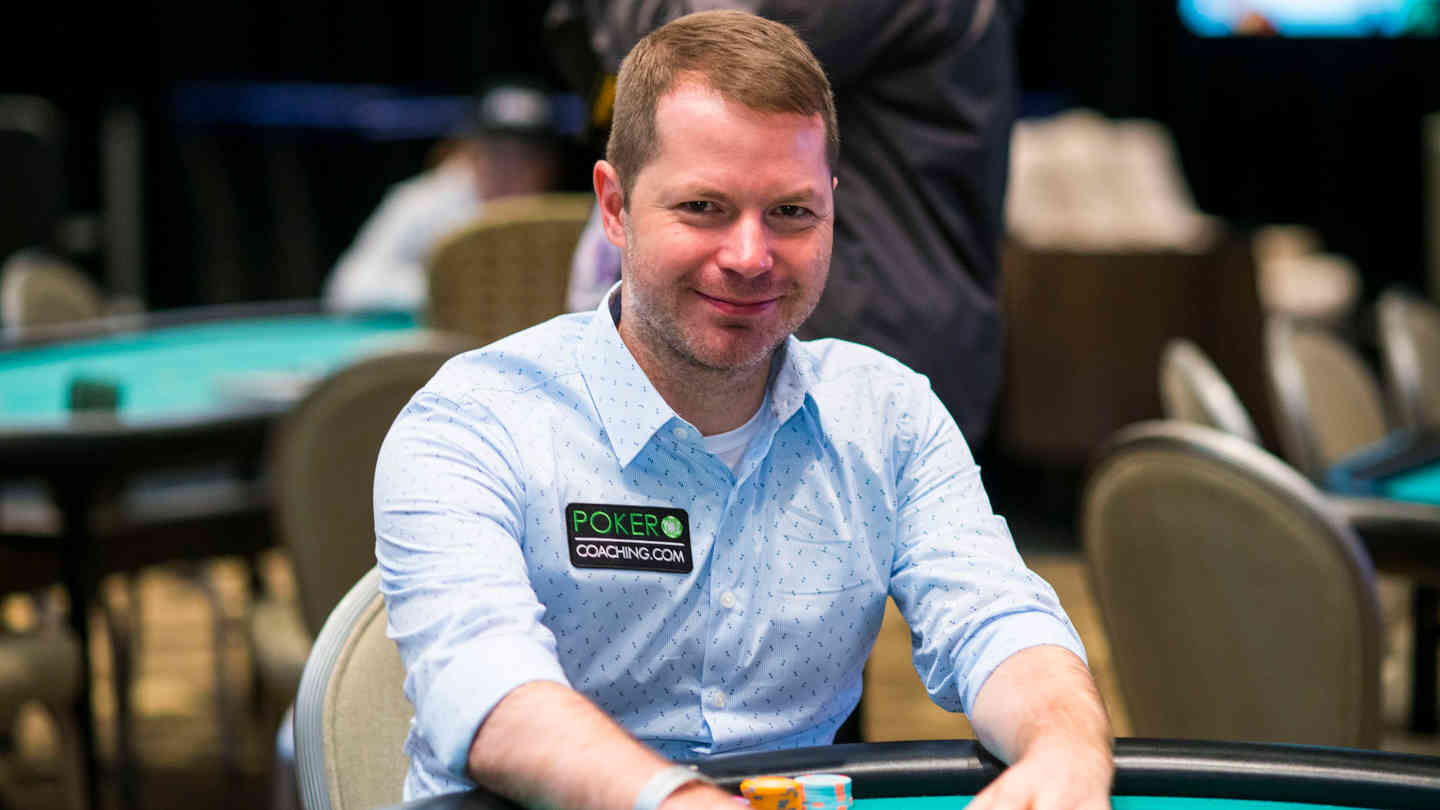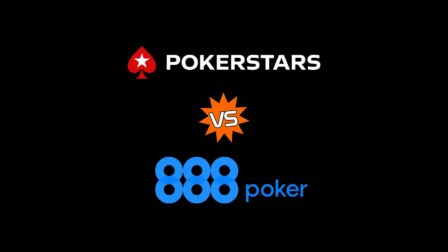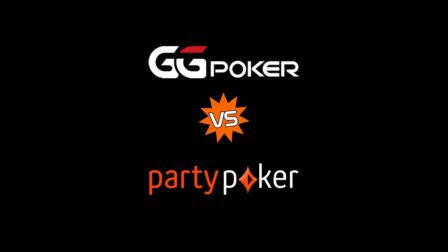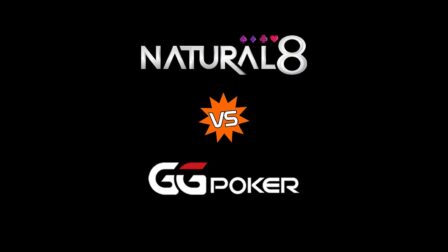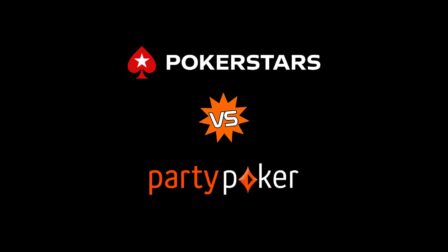The Game Plan Review – A Different Course by Kevin Rabichow
While the lack of learning resources may have been a problem in the past, poker players looking to improve now face a completely different challenge. There are so many tools and coaching platforms that it’s difficult to choose and make the most of these opportunities.
This is where the latest course by Run It Once, taught by Kevin Rabichow and named simply The Game Plan, comes in.
Unlike most other poker courses, The Game Plan doesn’t focus on any specific strategy segment.
It is designed to give you a clear plan for determining the type of training you need and getting the best value out of the time spent studying.
The idea of using training resources to improve your game is good, but players often struggle to get what they’re looking for from a coach or training program. There is more to it than signing up for a platform and going through as many lessons as possible.
The Game Plan by Run It Once Poker is thus a very useful resource for all serious players, especially those who haven’t had previous experience learning poker systematically.
The Game Plan at a Glance: What You’ll Find Inside
The Game Plan was created for Run It Once training by Kevin Rabichow, a very successful player and an experienced poker coach.
As someone who’s been teaching poker for many years, Rabichow understands all the different struggles students of the game have to deal with. This course is designed to recognize, categorize, and minimize those struggles.
The Game Plan is divided into four main categories, namely:
- The Introduction
- Evaluate
- Improve
- Gameplan
Every segment of the course takes things one step further, helping players first evaluate their own game, followed by a series of videos designed to help you learn how to improve.
Finally, the Gameplan section is more of a traditional training course, where Rabichow goes into the theory of heads-up play and shares practical strategies for different areas of the game.
The Game Plan: Introduction
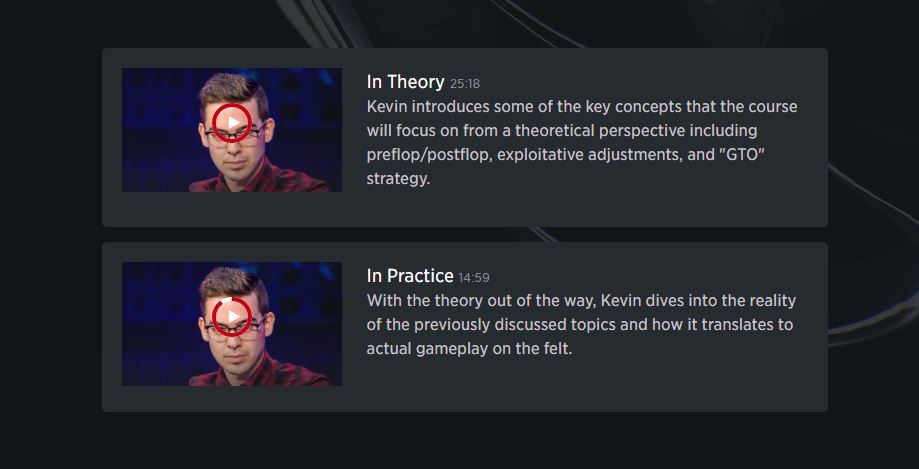
While the introduction segment of most poker courses isn’t all that interesting and can often be skipped, I’d say that’s not the case with The Game Plan.
Watching the Intro module is quite important, as this is where Rabichow explains how the whole course is structured and why you need this type of knowledge.
The intro section is divided into two main segments:
- In Theory
- In Practice
The ‘In Theory’ prepares you for the theoretical knowledge you’ll find in lessons to follow. Rabichow emphasizes that this study approach is designed for those who have moved past the basic level.
Breaking down things such as varying bet sizes, adjusting your frequencies, bluff-catching, and similar concepts only makes sense if you have your fundamentals right.
The ‘In Practice’ segment is perhaps more interesting, as it addresses the gap between theoretical knowledge and actually applying that knowledge at the tables.
Rabichow introduces ideas such as edge generation, table presence, the skill of execution, and making decisions on the river.
For each of these, there is much more than meets the eye.
For example, to have an edge in a game, it’s not enough for your opponents to make mistakes. They playing poorly doesn’t necessarily translate to you winning more money.
When it comes to table presence, it’s a skill of its own – it can be learned, but it’s more challenging as it’s not as specific.
The Game Plan: Evaluate
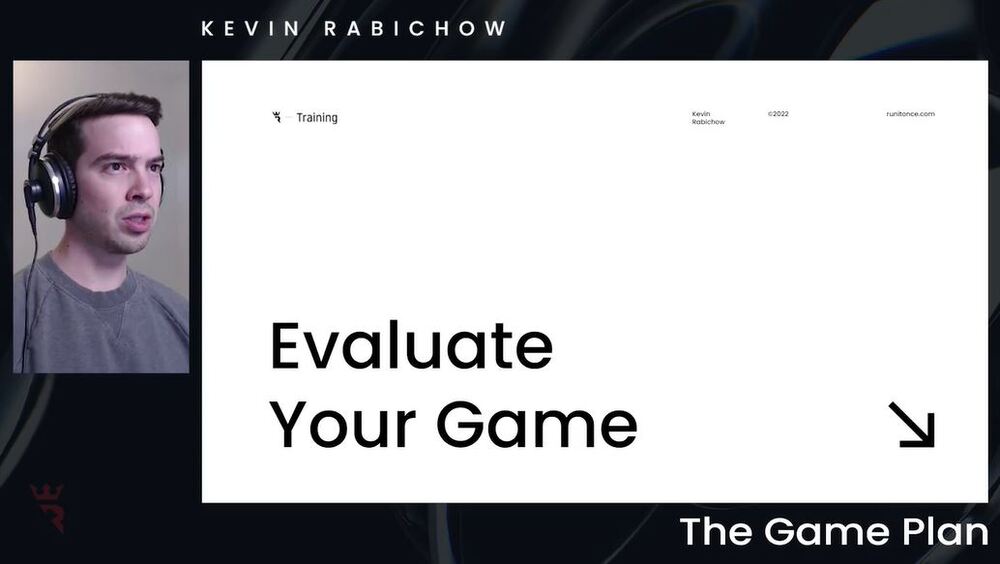
The second part of The Game Plan course is called ‘Evaluate,’ and it consists of several modules designed to help you evaluate your game and figure out where you’re at skill-wise.
Figure out your biggest strengths and weaknesses to best take advantage of them, and see where to concentrate your attention.
- Gameplan evaluation – use a form to rate and evaluate your current gameplan. It’s important to do it as honestly as possible to figure out what areas of your knowledge you are and aren’t happy with.
- Theory evaluation – how good is your theoretical understanding of the game? How comfortable are you talking strategy and explaining different concepts? This evaluation aims to get to the core of what you need to know as a poker player.
- Study evaluation – this module uses a similar format to determine how effective your current studying routine is. The goal is to figure out what you’re devoting your time and resources to at the moment and how well it’s been working for you.
- Skill evaluation – finally, in this module, you try to rate your skills against the competition and decide what areas of your game you may recognize as lacking and needing more work.
The final video of this module represents a summary of everything as Kevin Rabichow offers you a detailed guide on building your own study template.
The goal here is to figure out the priorities and create your plan according to these priorities. He suggests that being active in the course Discord community and bouncing thoughts and ideas off of other players can be a very helpful step in this process.
The Game Plan Review: Improve
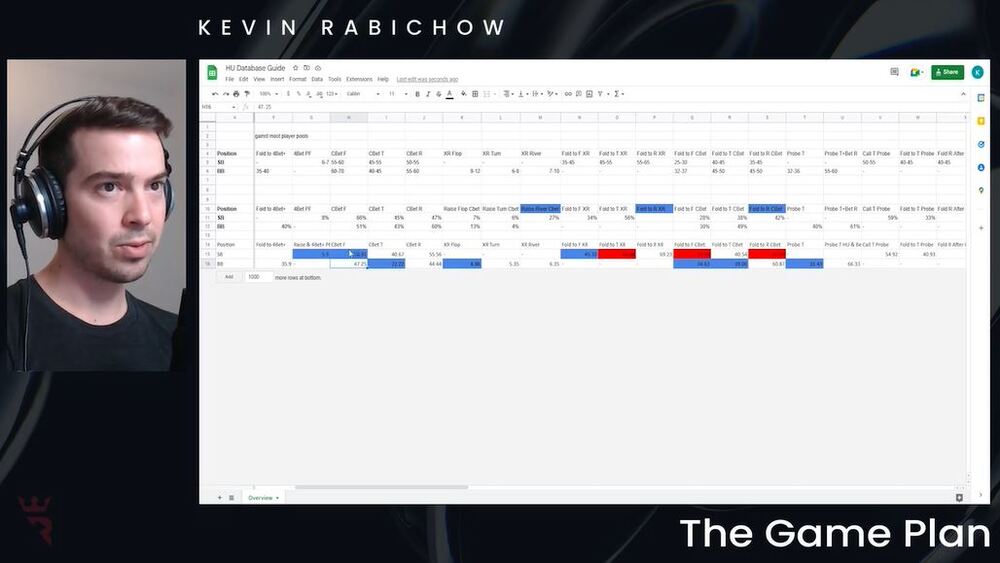
The third module is called ‘Improve,’ and this is where things start to come together. Having recognized your strengths, weaknesses, and what needs to be improved the most, it’s time to figure out how to address the issues.
Kevin Rabichow identifies several main ways in which players consume poker knowledge, alongside the main advantages and disadvantages of each:
- Poker content – it is a very popular way of consuming knowledge, primarily due to the low barrier to entry and the fact this type of content is easily accessible to everyone. However, students often passively watch training videos instead of observing them more as virtual coaching sessions.
- Poker solvers and sims – GTO simulations represent the modern way of studying poker. While this can be a very efficient way of learning, players often face difficulties interpreting simulations and running their sims in a way that makes sense.
- Using your database – the information from a database can be a great resource to study your play and analyze your opponents. Although geared more towards online poker, this approach has also been used by some live players because it is very effective.
- Community – participating in a poker community can be very helpful. Everyone starts from a different place and has different information. Communicating with other players can help you broaden your horizons and significantly accelerate the learning process.
This module offers several lessons covering each of these studying options, discussing the positives and negatives in detail.
For example, Rabichow offers extensive explanations on how to best use coaching videos and even free live streams to improve your game. But he also cautions about some pitfalls of these resources, as they’re often not targeted at your particular area of interest, the information can become outdated, etc.
He discusses the advantages of having a private coach but also emphasizes that most learning actually happens between the sessions.
Solvers represent the next step in the poker learning journey. Rabichow provides several videos about the merits of studying with solvers, looking at some popular poker tools such as Poker Scientist, Simple Preflop, and Lucid GTO to help you understand how to best learn using these tools.
Your Gameplan
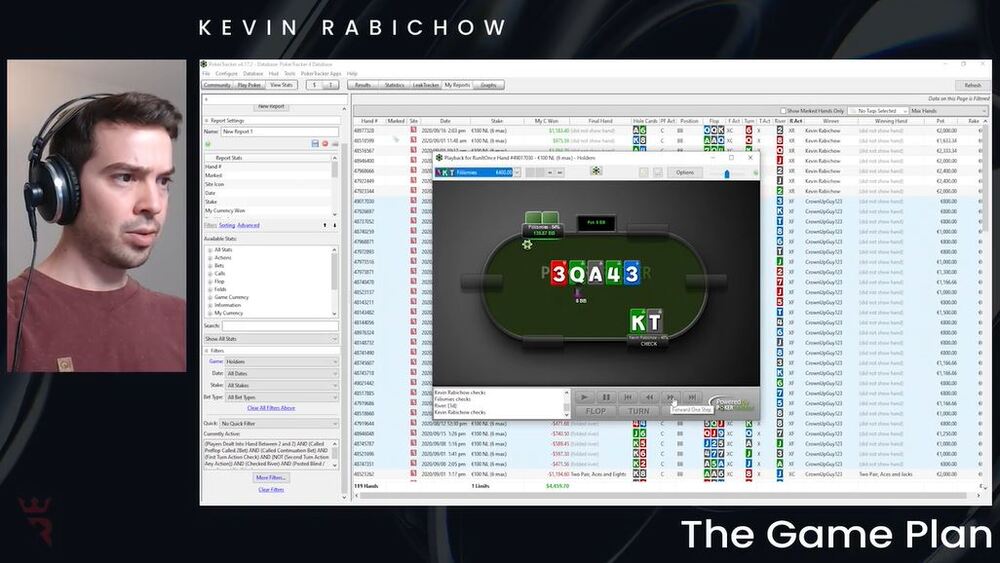
As mentioned, the final module of The Game Plan by Run It Once Poker represents Rabichow’s breakdown of strategies for heads-up play.
While the information provided in this module is aimed primarily at heads-up, the first video in this section provides some insights into how you can utilize this information in other formats.
- The ‘Gameplan’ module covers areas such as:
- Preflop play
- Flop strategies
- Flop check-raises
- Categorizing turn and river textures
- River value and bluff thresholds
- A detailed breakdown of 3-bet pots
There are more than 10 hours of video materials in which Kevin digs deep into the subject matter and shares his own strategy secrets. He provides his own preflop ranges, for example, alongside the explanation of the process of how he got them.
The ‘Gameplan’ module also helps demonstrate how some of the learning strategies explained in previous modules can help you improve your game. Throughout the lessons, Kevin uses various GTO tools and the information from his database to derive conclusions and make adjustments.
Summary: Is The Game Plan Worth It?
This particular Run It Once course is quite different from everything else out there, just maybe a bit similar in some ways to A-Game Masterclass by Elliot Roe. It is not that much about teaching you about poker as it is about teaching you how to learn poker.
As someone who’s seen many poker courses, I can honestly say that the knowledge from this course can be very useful.
The Game Plan provides a clear path for identifying mistakes in your game and taking steps to improve them.
While The Game Plan may not be for total beginners, once you start moving to that next level, it can be challenging to figure out how to structure your learning regime and decide what to focus on. Poker is such a complex game that you’ll never learn everything, so you want to focus on the stuff that matters and that you need the most help with.
If you are serious about getting better and feel a bit lost with all the options, this course will help you. And once you master the process, you can go back to it time and time again to keep building on your knowledge, so make sure to take a look inside!



